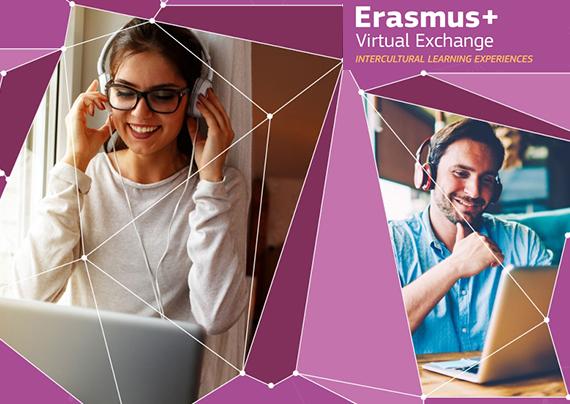Virtual Exchanges: new Erasmus+ action
Universities and youth organizations have a new opportunity to design virtual exchange projects with regions outside the EU.
Virtual exchanges in higher education and youth are a novelty of Erasmus+ programme this year. This action belongs among centralized activities, which are managed directly by the EACEA in Brussels. The call has already been opened on the FTOP portal with the deadline for applications on 22 February 2022. The call is divided into two topics (one for projects with the Western Balkans and one for all other regions).
Virtual exchange projects consist of people-to-people online activities, that promote intercultural dialogue and the development of digital and soft skills. They provide young people an access to quality international and intercultural education (formal and non-formal) without the need for physical mobility. Virtual exchanges will take place in small groups and must be moderated by a trained facilitator in order to achieve a quality learning experience. Projects should be easily integrated into youth projects (non-formal education) or higher education courses.
Projects under this call must involve organizations and participants from Member States and third countries associated as well as third countries not associated to the program. The total budget of €4 million will be divided between projects covering different regions. The size of each envelope will be different: Western Balkans (€1 million), Sub-Saharan Africa (€1 million), Eastern Partnership (€750,000), Southern Mediterranean (€750,000) and Russia (€500,000).
Kde hledat informace o Virtuálních výměnách?
- recording of the info webinar
- notes from the info webinar (CZ)
- factsheet on Virtual Exchanges
- Programme Guide (pp. 186–192)
For inspiration, it is also recommend to go through the recently published publication on the EVE pilot project, which run from 2018 to 2020 and involved partners from the EU and the Southern Mediterranean. The main goal of the project was to support social, civic and intercultural competences as well as the development of critical thinking and media literacy. The project was successful as it involved around 30,000 participants in three years (half from the EU, half from the Southern Mediterranean).
